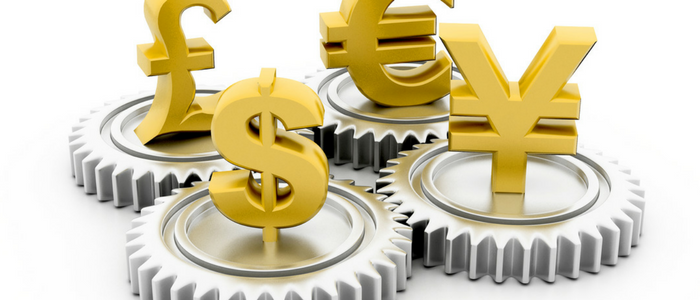Remote trade merchants enduring the most noticeably awful losing streak on record are getting no assistance from the world's most well known coin pair.
The euro moved in its tightest range ever versus the dollar amid the quarter simply past. It's a prime case of the greatest test confronted by merchants: the unpredictability they abuse for benefit is falling all through the $5.1 trillion-a-day market, sending a file of top assets' profits tumbling for a seventh month in September.The torpor is for the most part because of national banks. The difference exchange that should see a rate-trekking Federal Reserve split from its associates and goad the dollar higher is sputtering, with a dull U.S. economy compelling authorities to hold off on fixing arrangement. The euro has stagnated as financial specialists judge that the European Central Bank is coming up short on ammo to extend the cash supply. The discomfort is notwithstanding spreading to the yen, the current year's best-performing created market money, as merchants measure the Bank of Japan's most recent approach turn.
"The greater part of these administrators did genuinely well in bouncing in on dollar aches in 2014 and 2015, however now that there's no pattern they've been battling," said Ugo Lancioni, a cash supervisor in London at Neuberger Berman Group LLC, which directs about $246 billion. "There's no reason for executing energy procedures if basics don't bolster the story."
A long position is a bet that a coin will appreciate.
Staying Neutral
A developing number of financial specialists and brokers say the euro-dollar rate is moving so little that it does not merit making a fuss over, while figures in a Bloomberg study propose it will stay inside around a penny of its $1.0952-$1.1366 second from last quarter range until 2018. That is the tightest reach for a quarter since the single coin's 1999 initiation.
"We're not dynamic in the euro-dollar space one way or the other," said Roger Hallam, London-based boss venture officer for coinage at JPMorgan Asset Management, which directs $1.7 trillion. "The business sector is starting to consider the points of confinement of fiscal arrangement. There's no genuine motivation for the euro to exchange fundamentally weaker from here."A JPMorgan Chase and Co. unpredictability measure simply presented its first back-on back quarterly drop in over two years as the effect of the Brexit submission blurred, dropping to 10 percent, from more than 12 percent in June.
The Parker Global Index of profits is likewise falling, extending its decay this year to 3.5 percent, the most since 2011. The seven-month losing streak is the longest in information about-facing to 2003.
Force exchanging, or taking after patterns, for example, the foreseen dollar surge, has fallen since early July, as indicated by a Deutsche Bank AG file. It's up 2.4 percent this year, set for the most noticeably awful execution since 2012, while the Bloomberg Dollar Spot Index has fallen 3.8 percent, set out toward its first yearly slide in four years.
In the wake of harming financial specialists with a surprising thankfulness in the main portion of the year, the yen has stopped its climb in the midst of theory it fortified too quick and after BOJ Governor Haruhiko Kuroda said Sept. 21 the national bank would focus on its bond buys to support swelling all the more successfully.
Around the same time, the Fed held its key rate unaltered and stressed a slow way toward more tightly strategy. Draghi abstained from boosting the ECB's bond-buy arrangement at its latest meeting right around a month prior, even as the organization cut its 2018 monetary development conjectures.
Convey Thrives
One recipient of the drop in worldwide instability is the convey exchange, where the benefit from obtaining efficiently in one money and contributing where rates are higher can be wiped out by value swings. A Deutsche Bank record following this technique has risen 7.5 percent in 2016 in the midst of a rally in developing business sector monetary standards and as the Fed holds off raising rates for a brief moment time since the money related emergency.
For the business sector all in all, however, the wallowing of real national banks is settling on it hard to take choices.
Ulf Lindahl, CEO of A.G. Bisset Associates LLC, said it would take a surge in the euro for the cash chief to purchase once more into the single money. It won't be long until that happens, however, he said; the euro has been level for a really long time.
"We are nonpartisan on the euro against the dollar and have been since Aug. 1," said the 35-year market veteran, who oversees more than $1 billion from Norwalk, Connecticut. "Be that as it may, we're set up to purchase it if it move higher."

No comments:
Post a Comment